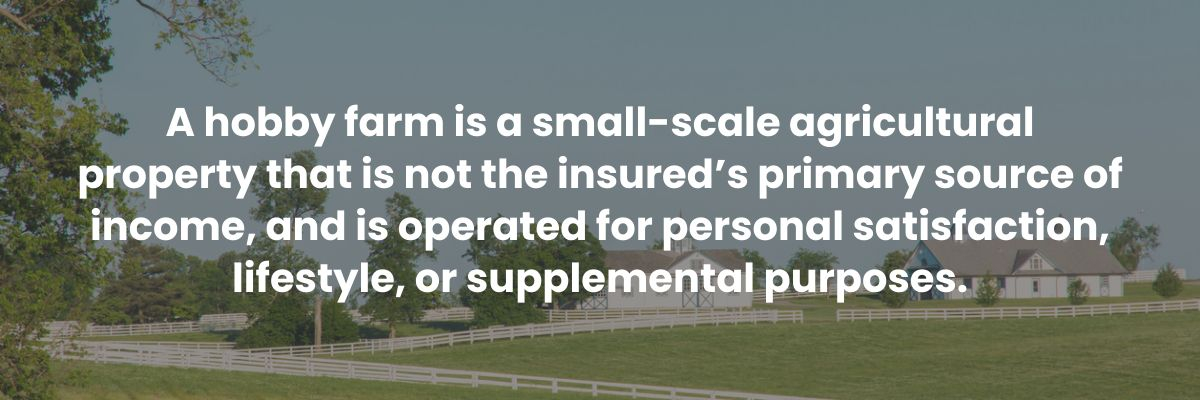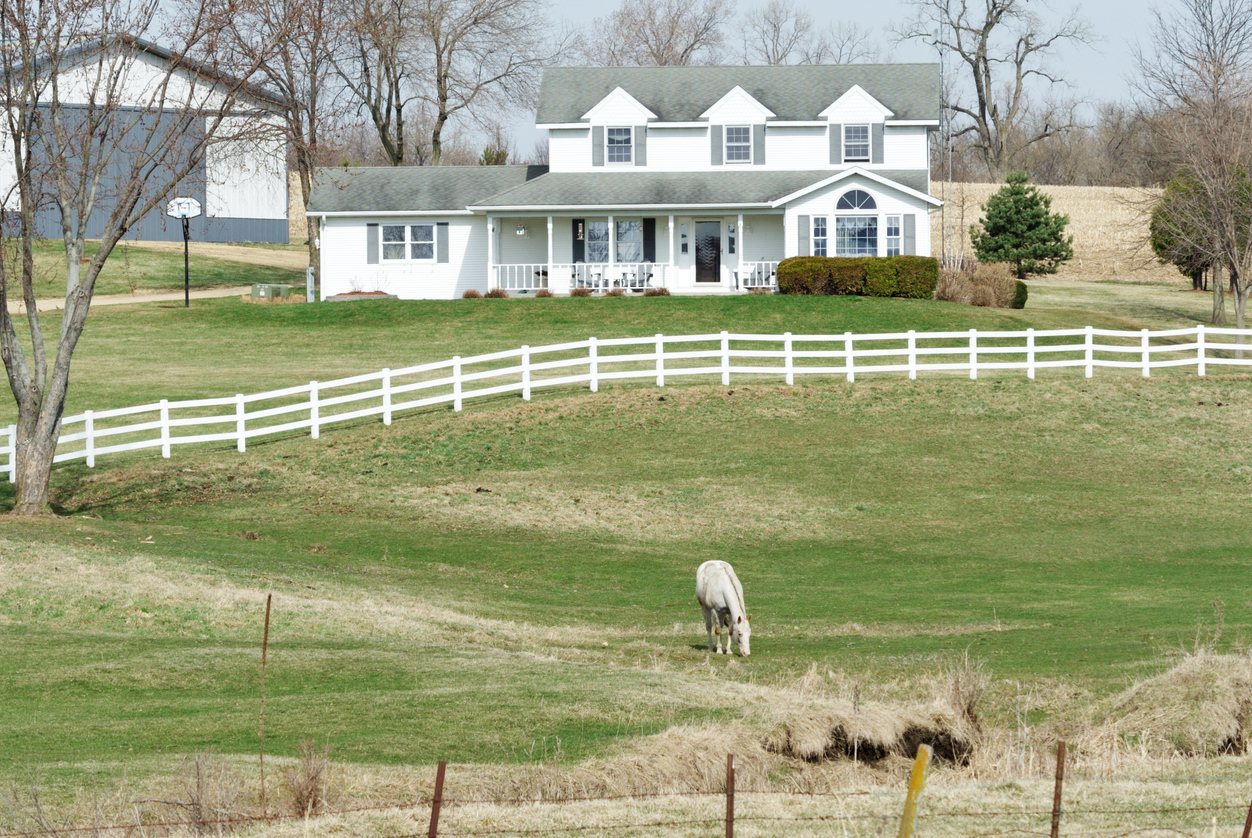From small vegetable gardens to backyard beekeeping, more homeowners are turning their land into something more than just a residence.
Whether they’re retirees chasing a rural dream or city workers cultivating a side project, these hobby farmers need coverage that accounts for more than personal property.
That’s where hobby farm insurance comes in.
Here’s what agents need to know to evaluate risk, avoid gaps, and match clients with the right protection.
What Is a Hobby Farm?
In insurance terms, a hobby farm is a small-scale agricultural property that is not the insured’s primary source of income, and is operated for personal satisfaction, lifestyle, or supplemental purposes.
These properties typically involve:
- Less than $10,000 in annual farming income
- No full-time employees
- Light agricultural use (e.g., vegetable patch, beehives, small number of livestock, personal/pleasure horses, or poultry depending on carrier definitions)
- A handful of outbuildings, like barns, greenhouses, or sheds

Why Hobby Farms Need More Than a Homeowners Policy
It’s easy for clients to underestimate the risk and assume their homeowners policy is enough—until they realize hobby farm insurance may be required to truly protect their property and liability.
Even small-scale hobby farms can create exposures that personal lines carriers won’t cover, such as:
- Livestock or poultry onsite
- Farm-use outbuildings or equipment
- Visitors for classes or agritourism
- Very rural properties that are too far from fire protection or infrastructure to meet standard coverage requirements
Understanding how each carrier defines agricultural exposure is key. Even modest operations may need a farm and ranch policy to avoid costly gaps in coverage.
Tips for Writing Hobby Farm Insurance
Quoting hobby farm insurance starts with understanding your client’s full situation.
Use these six areas to evaluate the risk and find the right carrier:
1. Income source
- Is this a hobby or a revenue-generating business?
- Does the operation meet the carrier’s standards for “incidental agricultural exposure”?
Note: Don’t assume there’s none; carriers define agricultural exposure differently, and even small activities may qualify.
2. Structures and property use
- What buildings are on the property?
- What are their ages, sizes, and uses (e.g., storage, animals, tools)?
3. Livestock, poultry, and crops
- What animals or crops are kept?
- Are any products sold to the public—such as eggs, produce, or goods from a farm stand?
Note: These activities increase liability exposure and additional coverage or a separate policy may be required as a result.
4. Equipment
- What tools or machinery are used for farming?
Note: Equipment is usually covered on an Actual Cash Value (ACV) basis. An inventory and valuation can support better planning.
5. Liability exposure
- Are there classes, tours, or events held on the property?
- Are there fences, warning signs, or restricted access to protect visitors?
Note: Inviting the public onto the property increases liability exposure and additional coverage or a separate policy may be required as a result.
6. Permits and zoning
- Are there any local ordinances or restrictions that could affect coverage or claims?
Carrier Appetite for Hobby Farm Insurance
Stroud National works with three strong farm and ranch carriers—Travelers Agribusiness, Liberty Mutual, and ARU—that all offer coverage for a wide range of hobby farm risks.
Given the fairly broad appetite, many types of properties can be considered for coverage, including barndominiums and high-value dwellings.
However, some factors may limit eligibility, such as:
- No agricultural exposure
- Selling eggs, produce, or honey to the public
- Hosting events, classes, or tours without additional liability coverage
- Commercial poultry operations
If any of these apply to your client’s property, our underwriters can help you determine whether hobby farm insurance is the right fit, or if another solution is needed.
Ready to Quote Hobby Farm Insurance?
Our team is here to help you write more confidently, avoid costly coverage gaps, and grow your rural book of business.
Submit a quote request today to work through your next hobby farm risk and feel free to reach out with questions.

